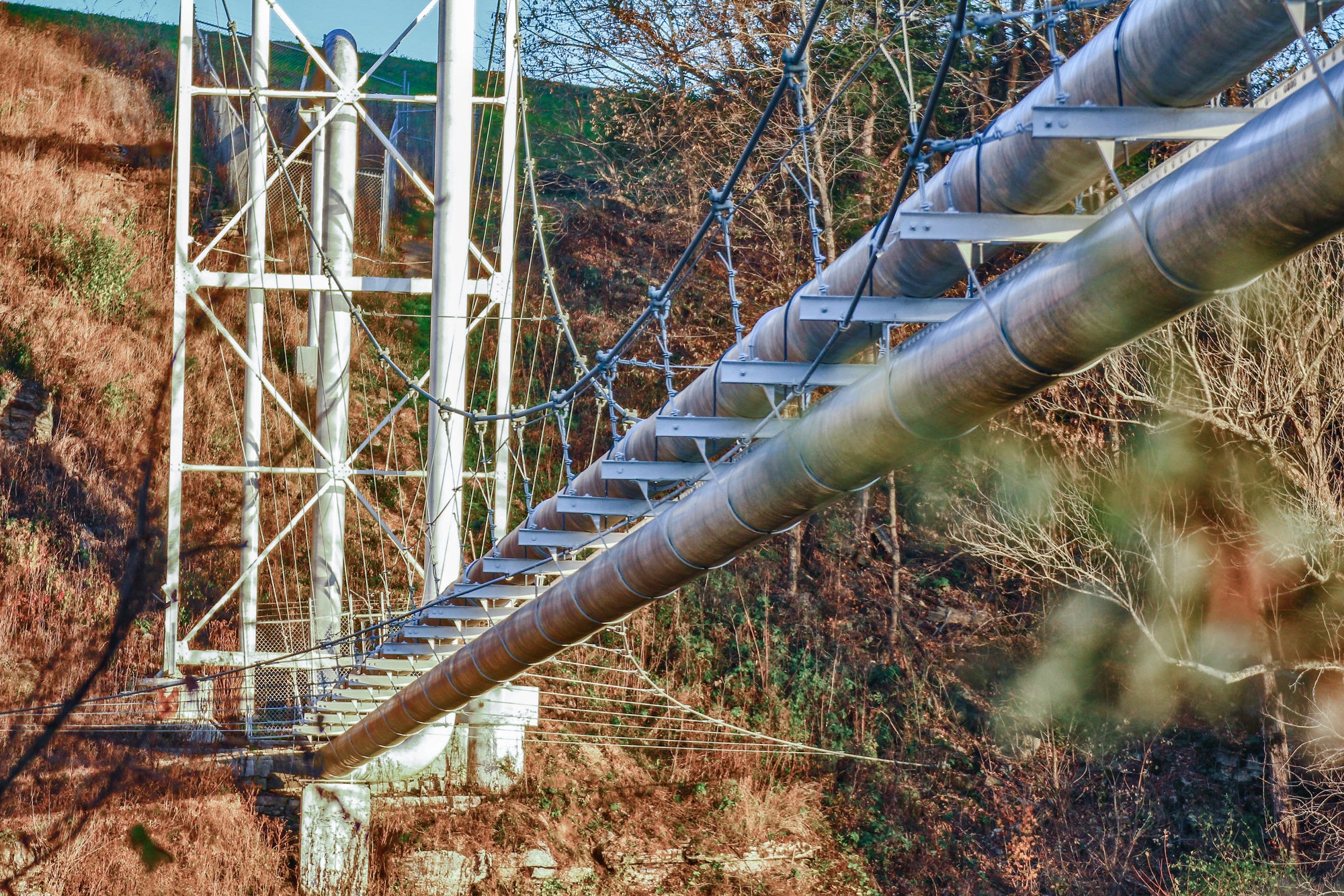Ruling on rehearing of natural gas pipeline case delayed
Published 8:41 am Monday, December 4, 2017

- File photo by Ben Kleppinger The Tennessee Natural Gas Pipeline No. 1 crosses Herrington Lake in Boyle County.
Federal pipeline regulators issued an order this week giving themselves unlimited time to consider whether to rehear a case concerning Tennessee Gas Pipeline No. 1, which runs through Boyle County. The director of the environmental group that sought rehearing in the case says the move is an attempt to undercut due process of law.
The case concerns Houston-based energy company Kinder Morgan’s plan to repurpose 964 miles of natural gas pipeline running between the northeast and the Gulf of Mexico coast. Kinder Morgan has asked permission to first “abandon in-place” the pipeline, essentially requesting deregulation of the pipeline’s contents. Then, it has proposed selling the pipeline from one of its subsidiaries to another, reversing the flow from south-to-north to north-to-south, and transporting natural gas liquids (NGLs), which are byproducts of fracking in northeast shale fields.
On Sept. 29, the Federal Energy Regulatory Commission (FERC) ruled that Kinder Morgan could proceed with abandonment, over the objections of opponents, including numerous vocal leaders in Boyle County. Opponents argue NGLs are heavier and more dangerous than natural gas; the existing pipeline is not built to handle the added load; and a leak or explosion could be devastating to local environments and economies.
On Oct. 30 — 29 days after FERC’s ruling — Pennsylvania-based Allegheny Defense Fund filed a “request for rehearing and motion for stay of order,” asking FERC to reconsider the case and rule that Kinder Morgan cannot move forward until a rehearing happens.
This week, FERC issued what’s known as a “tolling order” — 29 days after Allegheny’s request.
The tolling order’s title is “order granting rehearing for further consideration,” and the order states that “rehearing of the commission’s order is hereby granted for the limited purpose of further consideration.” But Tamara Young-Allen, a media contact in charge of natural gas issues for FERC, said the order does not grant Allegheny’s request; rather, it is a relatively common step the federal agency takes to give itself more time to consider a request for rehearing.
FERC is required by law to respond to requests for rehearing within 30 days of the request, Young-Allen explained.
“But if they can’t for some reason … they give themselves more time” with a tolling order, she said. “It’s just a procedural order that gives the agency as much time as needed to review those petitions for rehearing.”
Young-Allen said “it’s really hard to say” how long FERC might take to make a decision. She noted FERC is in the process of adding new members and “it could be that they were waiting for everybody to get on-board before these matters are taken under consideration.” However, she noted, “the commission doesn’t really give any reasons” for the tolling order beyond the need for more time.
Asked how long it has taken in the past for tolling orders to be resolved, Young-Allen said, “We don’t do stats. I don’t know.” She said FERC doesn’t have a count available of how often requests for rehearing are eventually granted or denied.
An analysis of meeting documents show that from September to November, FERC denied 16 requests for rehearing, granted in part two requests, granted in full two requests and dismissed one request for a lack of evidence.
Beginning in February of this year, FERC had too few commissioners appointed to take action, so it did not meet from February through August, according to FERC meeting records. But in the three months before that — November 2016 through January 2017 — the agency denied seven requests for rehearing and granted zero.
Ryan Talbott, executive director of the Allegheny Defense Project, said FERC regularly uses tolling orders to avoid ruling on cases while still allowing energy companies to continue with the projects in question.
Once the project is completed, “then FERC will deny rehearing,” he said. “That’s the way this works every single time. It’s very frustrating.”
Talbott said Allegheny has been involved in a dozen or more FERC cases, contesting the plans of energy companies it believes harms Pennsylvania’s forests. FERC has issued tolling orders to delay Allegheny’s requests for rehearing in “basically all” of them.
“In every single case, there’s a tolling order and then the project moves forward,” he said.
Allegheny hasn’t yet been able to force FERC to hold a rehearing after a tolling order is issued. But it is fighting FERC’s strategy in another case by going to the D.C. Circuit Court of Appeals, Talbott said.
Tolling orders were originally created for use in cases concerning rates and fees. It didn’t matter as much if it took a while to resolve the issues, because the harm created by the delay was financial and could be paid back, Talbott said.
But FERC has repurposed tolling orders by using them in cases with environmental concerns, he said.
“Whatever legitimacy they have in other proceedings where the harms are just economic, (in these cases) they essentially deny due process and there’s no remedy.”
Talbott said Allegheny first began involving itself in FERC cases several years ago, as “we realized more and more of these pipelines are getting built out of Pennsylvania and that’s going to induce more fracking for decades.”
Allegheny’s goal is the protection of Pennsylvania’s natural forests and preserved lands, and the expansion of fracking is threatening those resources, he said.
“FERC ignores all of this in their environmental analyses,” he said. “They refuse to look at the impacts of shale gas, fracking. They claim it’s not related to the pipeline, which is just absurd.
“… If they actually did the work to analyze the indirect and cumulative impact of the fracking in addition to the pipeline, they know it would not be in the public interest.”






